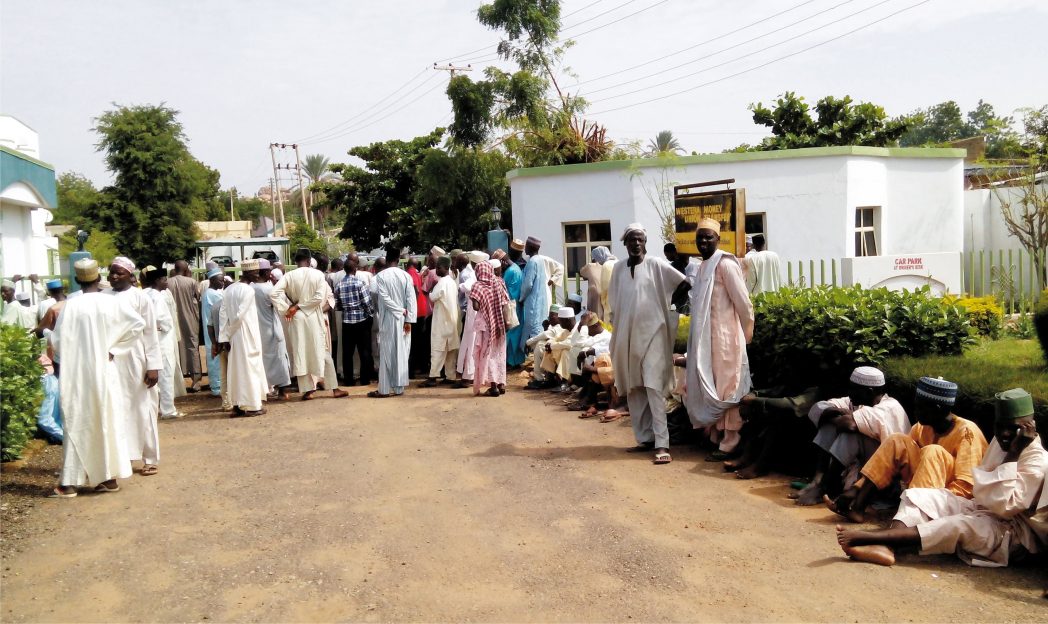Business
‘Mandatory Land Registration, Asset Declaration Can Curb Money Laundering’

The Chairman, Board of Trustee of the Society for Professional Valuation, Mr Sola Enitan,has said mandatory land registration, assets declaration, valuation of properties of public office holders and collaboration between anti-graft agencies and professional bodies could curb money laundering and other forms of fraud in the country.
Enitan said anti-corruption agencies needed to upscale their efforts in the fight against money laundering in the country, adding that the effects of the scourge on economic growth called for concern.
He stated that land registration should be mandatorily complemented with oath offices while all land consent applications and registration should be preceded by affidavit of price authenticity.
According to him, during land transaction, the buyer, seller, buying agent, selling agent and the deed draughtsman should all be made to submit affidavit that the price disclosed for registration was the authentic price and on threat of perjury, they should swear to bear the consequences.
He stated that a central online land registry that would show land ownership would also go a long way to creating greater transparency over the origins of money in the market, particularly when it included the names of real beneficiaries of the property.
This, he said, would make investigations by the Economic and Financial Crimes Commission and the Independent Corrupt Practices and other related offences Commission much easier.
He said, “More transparency about what public officials own makes it harder for them to secretly amass wealth in office through corrupt practices. At the very least, public declaration of assets before and after officials are in office should be a universal practice.
Transport
Nigeria Rates 7th For Visa Application To France —–Schengen Visa

Transport
West Zone Aviation: Adibade Olaleye Sets For NANTA President

Business
Sugar Tax ‘ll Threaten Manufacturing Sector, Says CPPE

In a statement, the Chief Executive Officer, CPPE, Muda Yusuf, said while public health concerns such as diabetes and cardiovascular diseases deserve attention, imposing an additional sugar-specific tax was economically risky and poorly suited to Nigeria’s current realities of high inflation, weak consumer purchasing power and rising production costs.
According to him, manufacturers in the non-alcoholic beverage segment are already facing heavy fiscal and cost pressures.
“The proposition of a sugar-specific tax is misplaced, economically risky, and weakly supported by empirical evidence, especially when viewed against Nigeria’s prevailing structural and macroeconomic realities.
The CPPE boss noted that retail prices of many non-alcoholic beverages have risen by about 50 per cent over the past two years, even without the introduction of new taxes, further squeezing consumers.
Yusuf further expressed reservation on the effectiveness of sugar taxes in addressing the root causes of non-communicable diseases in Nigeria.
-

 Niger Delta5 days ago
Niger Delta5 days agoPDP Declares Edo Airline’s Plan As Misplaced Priority
-

 Sports5 days ago
Sports5 days agoSimba open Nwabali talks
-

 Nation5 days ago
Nation5 days agoHoS Hails Fubara Over Provision of Accommodation for Permanent Secretaries
-
Niger Delta5 days ago
Stakeholders Task INC Aspirants On Dev … As ELECO Promises Transparent, Credible Polls
-
Niger Delta5 days ago
Students Protest Non-indigene Appointment As Rector in C’River
-
Rivers5 days ago
Fubara Restates Continued Support For NYSC In Rivers
-

 Oil & Energy5 days ago
Oil & Energy5 days agoNUPRC Unveils Three-pillar Transformative Vision, Pledges Efficiency, Partnership
-

 News5 days ago
News5 days agoDiocese of Kalabari Set To Commence Kalabari University

